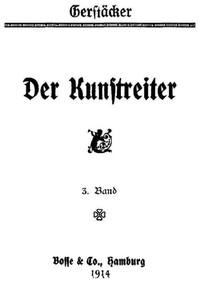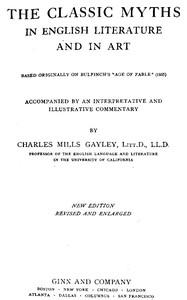|
|
Read this ebook for free! No credit card needed, absolutely nothing to pay.Words: 58575 in 32 pages
This is an ebook sharing website. You can read the uploaded ebooks for free here. No credit cards needed, nothing to pay. If you want to own a digital copy of the ebook, or want to read offline with your favorite ebook-reader, then you can choose to buy and download the ebook.

: Of the Injustice of Counterfeiting Books From: Essays and Treaties on Moral Political and various Philosophical Subjects by Kant Immanuel - Copyright@FreeBooksWed 07 Jun, 2023 Of The Injustice of Counterfeiting Books by Immanuel Kant Of The Injustice of Counterfeiting Books I believe, however, that I am justified to consider the publication of a book to be not the trading of a good in the trader's own name, but as the transacting of business in the name of another, namely, the author. , I am able to represent easily and distinctly the wrongfulness of counterfeiting books. My argument, which also proves the editor's right, is contained in a ratiocination; after which follows a second, wherein the counterfeiter's pretension shall be refuted. Whoever transacts another's business in his name and yet against his will is obliged to give up to him, or to his attorney, all the profits that may arise therefrom, and to repair all the loss which is thereby occasioned to either the one or the other. Now the counterfeiter is he who transacts another's business against the other's will. Therefore the counterfeiter is obliged to give up to the author or to his attorney . Proof of the Major As the agent, who intrudes himself, acts in the name of another in a manner not permitted, he has no claim to the profit which arises from this business; but the author or editor in whose name he carries on the business, or another authorized controller of the work to whose charge the former has committed the work, possesses the right to appropriate this profit to himself, as the fruit of his property. Besides, as this agent injures the possessor's right by intermeddling, "nullo jure," in another's business, he must of necessity compensate for all damages sustained. This lies without a doubt in the elementary conceptions of natural right. Proof of the Minor The first point of the minor is: that the editor transacts the business of the author by the publication. Here, everything depends on the conception of a book, or of a writing in general, as a labour of the author's, and on the conception of the editor in general . Whether a book be a commodity which the author, either through the author's own efforts or by means of another, can traffic with the public, and can therefore transfer the ownership rights of the book, either with or without reservation of certain rights; or whether the book is instead a mere use of his works, which the author can indeed concede to others, but never transfer the ownership rights of; Again: whether the editor transacts his business in his own name, or transacts another's business in the name of another? In a book, as a writing, the author speaks to his reader; and he who printed it speaks by his copies not for himself, but entirely in the name of the author. The editor exhibits the author as speaking publicly, and mediates only the delivery of this speech to the public. Let the copy of this speech, whether it be in handwriting or in print, belong to whom it will; yet to use this for one's self, or to traffic with it, is a business which every owner of it may conduct in his own name and at pleasure. But to let any one speak publicly, to publish his speech as such, means to speak in his name, and, in a way, to say to the public: "A writer lets you know, or teaches you, this or that, etc., through me. I answer for nothing, not even for the liberty, which the writer takes, to speak publicly through me; I am but the mediator of the writer's thoughts coming to you." Free books android app tbrJar TBR JAR Read Free books online gutenberg More posts by @FreeBooks
: Two Tragedies of Seneca: Medea and The Daughters of Troy Rendered into English Verse by Seneca Lucius Annaeus BCE Harris Ella Isabel Translator - Trojan War Drama; Medea consort of Aegeus King of Athens (Mythological character) Drama; Hecuba Queen of Troy@FreeBooksWed 07 Jun, 2023

: The Relentless City by Benson E F Edward Frederic - New York (N.Y.) Social life and customs Fiction; Upper class Fiction; British United States Fiction@FreeBooksWed 07 Jun, 2023
|
Terms of Use Stock Market News! © gutenberg.org.in2025 All Rights reserved.






